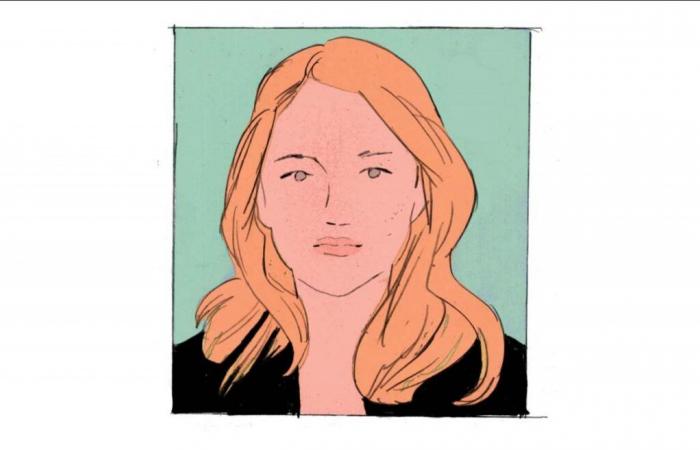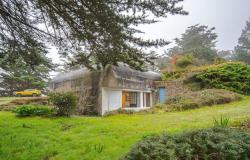You are signing a book published by Wildproject entitled Decolonizing the law and presented in the form of a dialogue with Marin Schaffner. Why this book?
It is a tribute to Alexis Tiouka, who was my mentor in indigenous peoples' rights in Guyana and who died not very long ago, as well as a tribute to the work he did with his brother Félix Tiouka (president of the Association of Amerindians of French Guiana, editor's note) 40 years ago. He made the first speech uniting the indigenous peoples of Guyana against the French colonial administration.
Interview from our n°66, on newsstands, bookstores, to order or by subscription.
It is an incredibly topical speech because it talks about the difference between our cultures, the way in which colonialism is still suffered due to mining industries and a predatory relationship with nature that is unacceptable with regard to indigenous law and its traditions. As we celebrate the 40th anniversary of this text, and despite the indigenous uprisings of 2017, these questions remain unresolved.
You are talking about French law as a “right to oppress”. How do you think this is a colonial right?
The book explains the Western world's predatory relationship with the land, other people's land, in this case. Guyana allows me to address this question through concrete cases that I have experienced and observed and against which indigenous organizations in Guyana continue to mobilize. For example, French law has deprived indigenous peoples of their right to self-determination – which is provided for in international texts relating to indigenous peoples.
That is to say their right to freely administer their territory while respecting their cultures. France has not ratified any of the international texts on this subject. It continues to impose a colonial model of organization which affects all aspects of the public and private life of each indigenous individual in Guyana, from the education of children to civil status and even ownership of land. .
You fought against the Montagne d'Or project in French Guiana. What did this teach you?
That French law was completely ineffective. The State has issued mining concessions to eternal life to private companies to extract gold from the subsoil on a territory which did not belong to it since it had been stolen from its first inhabitants. Subsequently, concessions were granted to indigenous peoples to live on their ancestral lands! It's shocking. They authorize indigenous villages to be located in well-defined areas, but if the French state discovers and wants to exploit gold there, the inhabitants can be chased away.
“In indigenous customary law, private and individual ownership of land does not exist. It’s even nonsense, even a danger.”
Financial and mining interests prevail over the rights of indigenous peoples. We consult the residents but it is not up to them to decide. In Brazil, consultation protocols have been established which are derived from international law. They allow recognized indigenous territories to write their own right to consultation which in fineif they do not agree, can obstruct the realization of mining projects or other industrial projects. In French law, this does not exist.
In his 1984 speech, Félix Tiouka called for “ recognition of our rights as first occupants » and that we take into account “our cultural traditions in the development of these rules“. What place does customary law have in French law?
Guyana is a French department. It is therefore subject to most of the standards found in France, with a few adaptations. Except that, unlike French law, in indigenous customary law, private and individual ownership of land does not exist. It is even nonsense, even a danger. The land belongs in common to the group that lives there and uses it collectively. The aim is to prevent land from being ceded, grabbed or destroyed.
This is why organizations mobilized in 2017 so that France commits to returning 400,000 hectares of land to the indigenous people of Guyana. Native American organizations wanted to be able to administer them freely and collectively through an institution that would allow them to represent their own land rights based on, among other things, Kanak land rights.1. Since then, France has blocked the restitution process because it does not want to let these indigenous peoples self-organize. It wants to maintain the possibility of exploiting resources, particularly mining and forestry. There is also a political reason with a desire to control these territories. Similar problems are observed in New Caledonia.
What is the link between the fight for the preservation of the environment and the decolonial struggle?
Colonization concerns both humans and non-humans. These lands that France legally considered as its own by declaring them arbitrarily no man's land (“uninhabited land”), and therefore by voluntarily making these people invisible, must question us about the way in which we monopolize the living space of all other species and living entities in general.
Colonization is based precisely on the fact of occupying and exploiting land which was until then inhabited by other peoples via, in particular, private property. How to reform this right?
Private property notably governs the fact, which cannot be criticized in itself, of using the fruits of nature. Each animal, each plant is thus connected to the ecological matrix to obtain its sustenance, to ensure its fundamental needs. This is also indigenous logic. What is different in the relationship with the living that I denounce is the monopolization and abuse committed against nature. That is to say, destruction for capitalist purposes. In law, this is calledabuseor the fact of being able to dispose of, sell or destroy one's property as owner. It is a distortion of private property, deeply criticizable and denounced in Félix Tiouka's speech in 1984: “Contrary to your system of values, we do not want to build a society where collective interests must always come before the private interests of capitalist entrepreneurs. »
In the indigenous cosmovision, we use the land and share it to pass it on. There is the idea of preservation for generations to come, but also of sharing with others than humans and ancestors. This creates very interesting legal rules such as the prohibition among the Kali'na2 of Guyana to open up the land to extract mineral resources from the ground, because that is where the bodies are buried and it would potentially reopen issues of the past. Their customary law is built around this balance between life and death, past, present and future.
Conversely, French property rights are the only sacred right enshrined in the Declaration of Man and Citizen! And it is the fruit of the French Revolution – in reality a bourgeois revolution – which places private property at the center of our deeply individualist model of society. For many indigenous civilizations, the individual is not the cardinal value. Rather, it is collective well-being, sharing between humans and non-humans and transmission that are essential. It is crucial to question the creation of our norms and values on an ethical, historical and philosophical level, because today they generate a deeply predatory, materialistic and selfish relationship with the world. I say it: our right is the right of a sociopath.
Your solution would be to grant rights to nature. For what ?
The rights of nature movement is not new. It was theorized in the 1970s by the jurist Christopher Stone and was subsequently enriched by indigenous cosmovision. It grew in particular thanks to local mobilizations, who saw in it the legal possibility of protecting themselves from market standards. From the 1970s and 80s, indigenous peoples realized that they would not be able to cope with the very concrete challenges of colonization and the impossibility of winning by force of arms.
They organized themselves to obtain international law texts and convince States (against their own interest) to recognize their rights, under the influence of the United Nations in particular. Faced with pressure on the resources (oil, gas, wood, etc.) coveted on their territory, indigenous struggles have used the nature rights movement to assert the link between living communities (humans and non-humans) and respect for their fundamental rights.
It all started in 2008. Ecuador, the United States and Bolivia were the pioneers on the subject. Then there was a global boom. Faced with extremely brutal colonial or neocolonial influence, the tool of law and negotiation makes it possible to open up the horizon of thought, particularly on other ways of inhabiting the world. We never asked the question of who owned the land. How could we imagine cohabiting with other than humans (the lynx, the wolf, etc.) if we do not recognize them as having any right to share this earth with us?
We must remember the Valladolid controversy (1550-1551) which opposed, within the Catholic Church, those who were convinced that indigenous peoples were humans with souls and those who said that they were animals. Black people have long been legally considered livestock and labor for agricultural work. In the same way, Christopher Stone recalls in his book that in the United States the law considered Jews as beingswild nature(“wild by nature”). This distortion clearly shows that Western colonization generally took place through the discrimination of non-white human beings and associated non-human beings in a legal category voluntarily inferior to that of white human beings.
How do we go about “decolonizing the law”?
For me, it is absolutely necessary to question this absolute private property, the ability to sell everything or destroy everything. This is, among other things, what the rights of nature movement allows. It imposes this coexistence and therefore this sharing on earth between all beings. Decolonizing the law means recognizing the rights of all: human and non-human. There is a logical synergy between the rights of nature and decolonial thinking to rebuild other ways of inhabiting the world with solid legal foundations. Many philosophers and thinkers have addressed this question. Now, we must support it legally and put the law back into the service of life.
1. The Kanak people are an indigenous people of New Caledonia.
2. Indigenous people found in several countries on the Caribbean coast of South America.
Decolonizing the law – Marine Calmet – Wildproject, 2024 96 pages, 9 €
Support Socialter
Socialter is an independent and committed media that depends on its readers to continue to inform, analyze, question and examine new ideas that are struggling to emerge in public debate. To support us and discover our next publications, do not hesitate to subscribe!
SubscribeMake a donation






